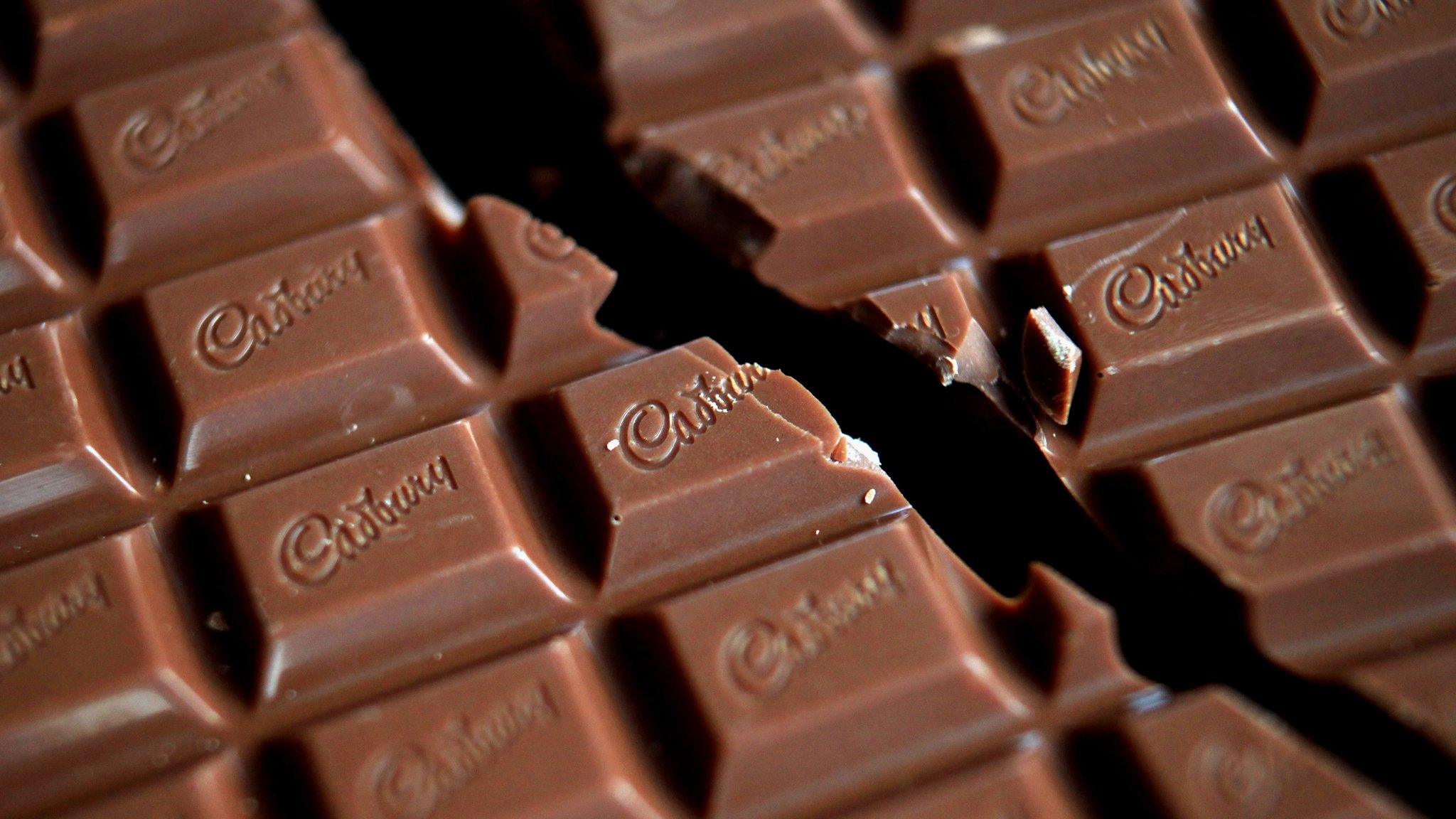Chocolate price hike if Brexit deal fails, warns Mars
- Published
- comments
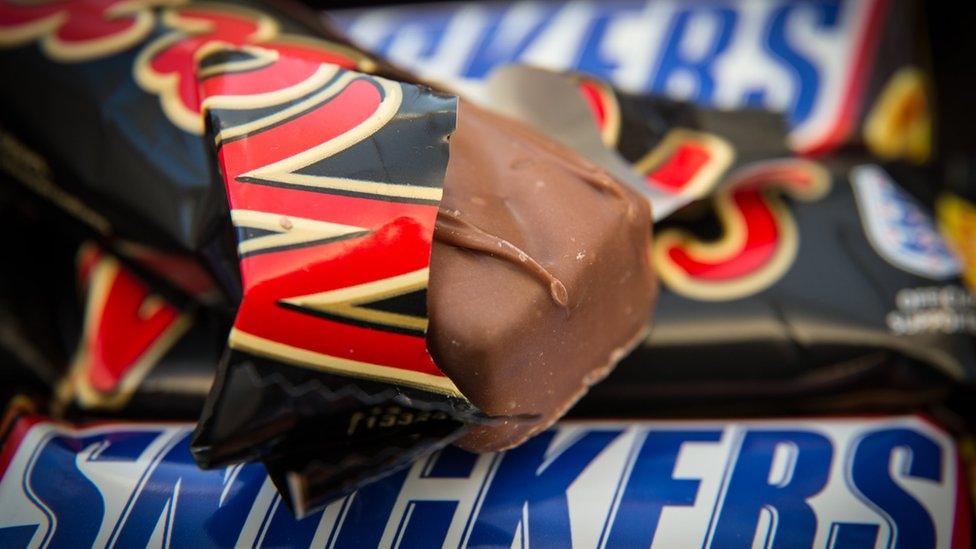
Mars Food's global president warned of the price increase at an EU meeting.
Chocolate prices could rise if the UK does not secure a trade deal post-Brexit, according to Mars' top boss.
Fiona Dawson, global president for Mars, said the absence of a deal with EU member states would see tariffs of up to 30% for the industry.
Speaking at the American Chamber of Commerce to the EU, she warned this would "threaten [the] supply chain and the jobs that come with it."
Theresa May has promised to push for the "freest possible trade".
The Prime Minister has said that if a good deal is not agreed with the EU, the UK will walk away, adding: "No deal for Britain is better than a bad deal for Britain."
But Ms Dawson fears this would see the country revert to World Trade Organisation trading rules, meaning tariffs.
"The absence of hard borders (in Europe) with all their attendant tariff, customs and non-tariff barriers allows for this integrated supply chain, which helps to keep costs down," she said.
"The return of those barriers would create higher costs which would threaten that supply chain and the jobs that come with it."
Ms Dawson said those costs could not be absorbed by confectionery companies, meaning consumers would have to pay more for their products.
Mars has factories in the UK and across Europe, with ingredients being transported between sites in France, Germany, Poland and other EU countries.
The firm invested more in the UK after the Brexit vote, including an announcement of £23m at its factory in King's Lynn, Norfolk.
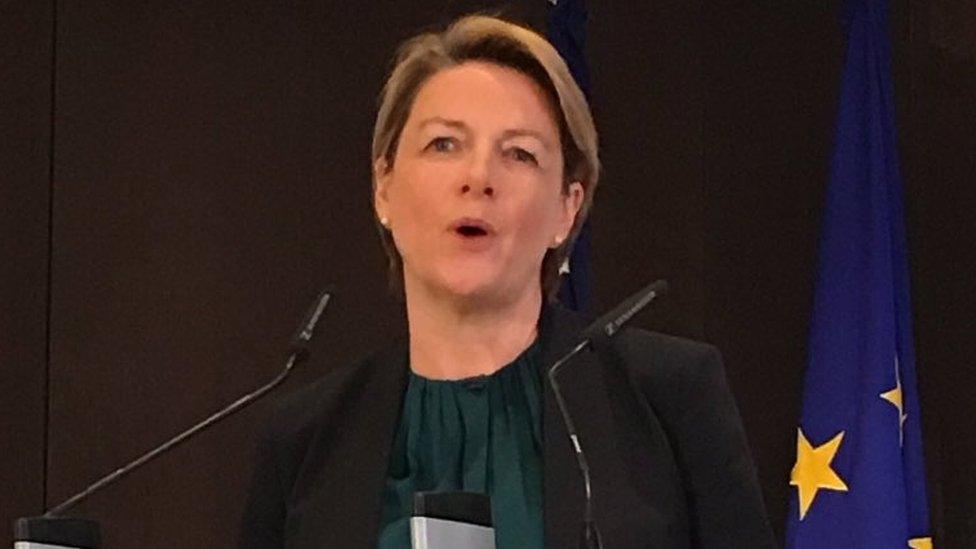
Fiona Dawson speaking to the American Chamber of Commerce to the EU.
Companies in the automotive and the financial sector have been the focus since the vote, according to Ms Dawson.
But with food and drink the largest manufacturing sector in the UK, accounting for 16% of turnover, she said she wanted a new focus, and called for EU leaders to look at the bigger picture when negotiating.
"There can be no economic advantage either side restricting trade with a large market situated on its doorstep," she said.
"In simple terms, if the UK and the EU fail to agree on a new preferential deal, it will be to the detriment of all.
"Other member states should remember this is not about 'punishing' Britain for her decision to withdraw, but rather about finding the best solution for European and UK workers and consumers.
"That consideration must come first as we build the future."
People's pockets
Toby Clark, director of research for analyst firm Mintel, said there are no guarantees what will happen to prices, but consumers were already feeling the effects.
"The real challenge is these price rises are going to start happening before Brexit," he said. "Towards the end of last year, the grocery market was so competitive that you didn't see a lot of changes.
"But now they are coming through, before any of these big things happen, with tariffs or the supply chain.
"There is some positivity out there that Brexit will be good for the overall economy, but our research shows 45% think it will have a negative impact on people's pockets when it comes to prices. People are worried."
The BBC has contacted the Department for Exiting the European Union for a response.
- Published10 March 2017
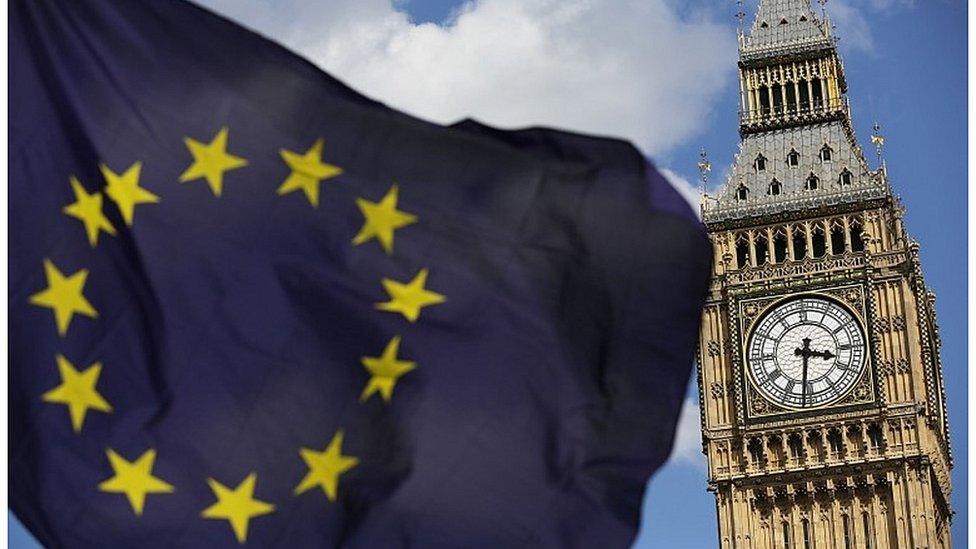
- Published6 March 2017
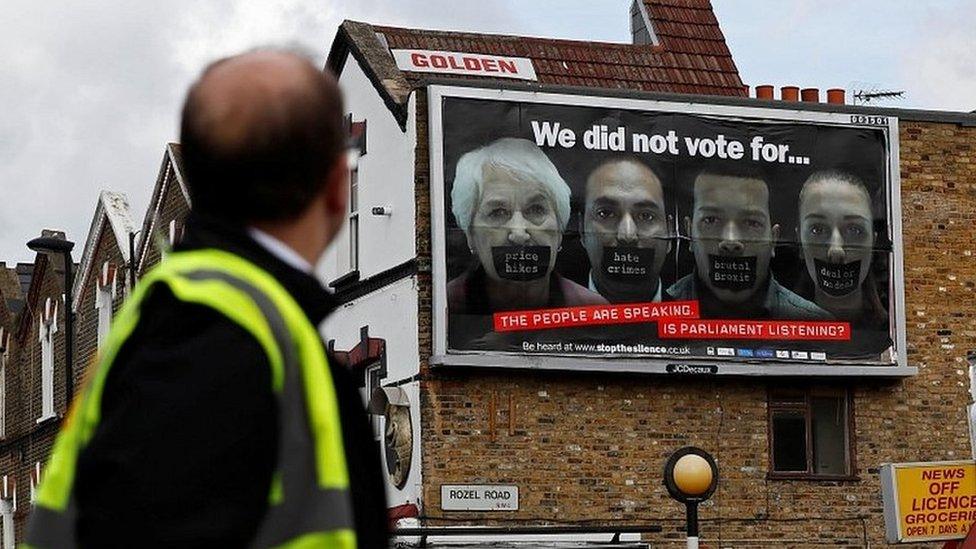
- Published2 March 2017
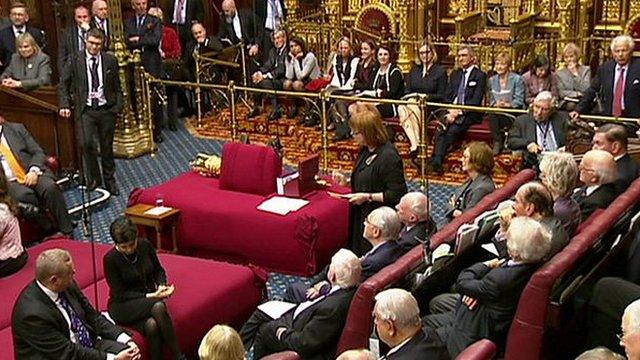
- Published12 June 2016
